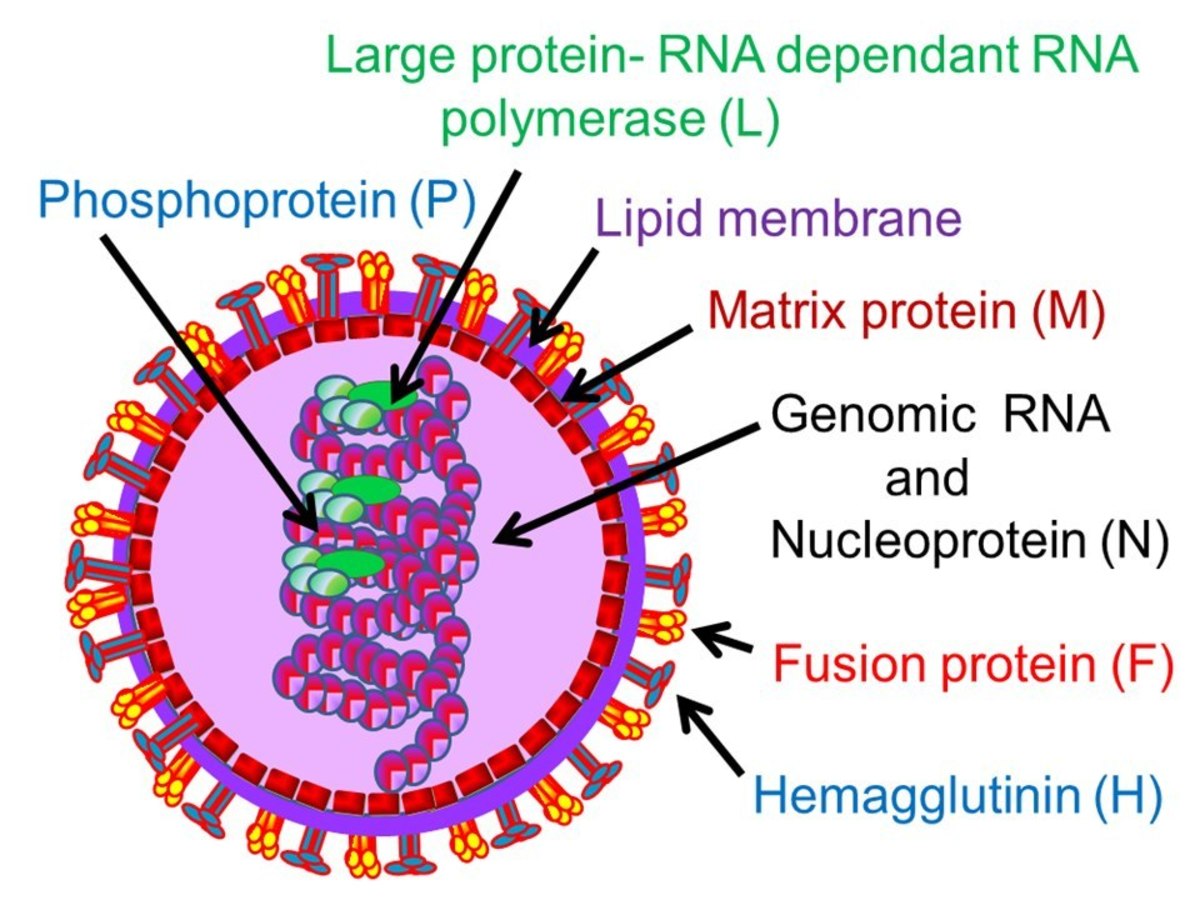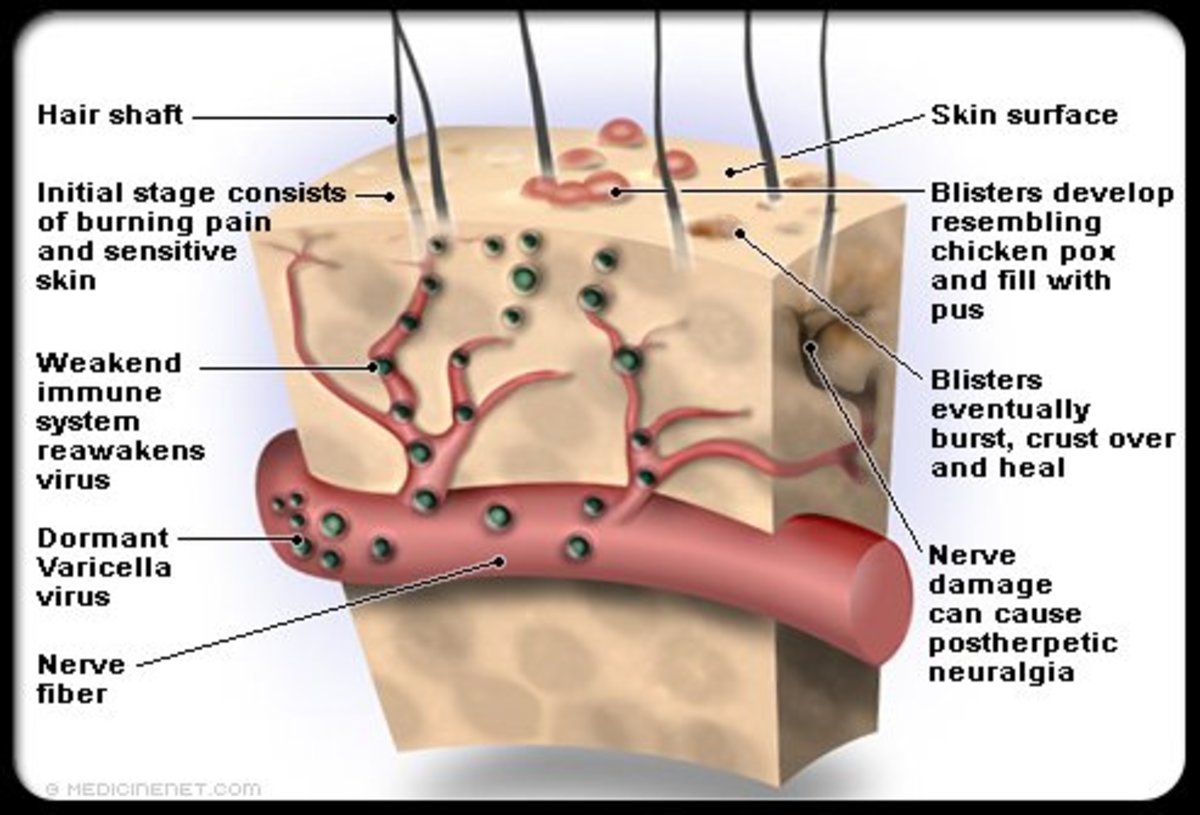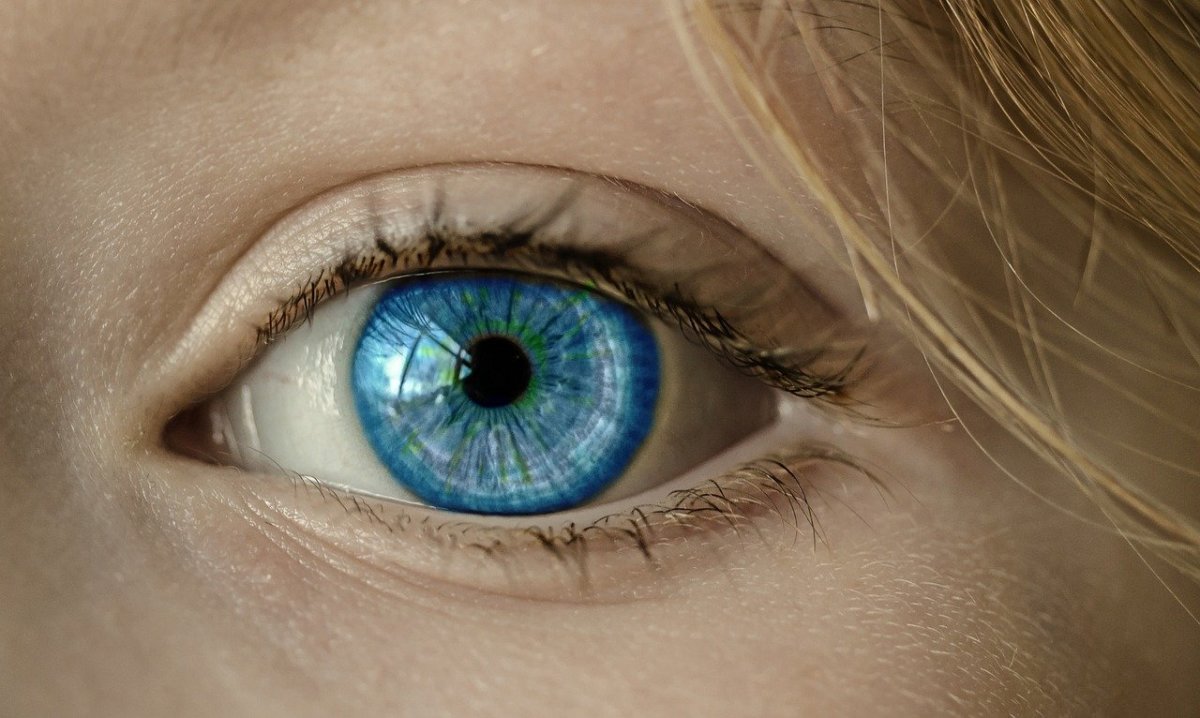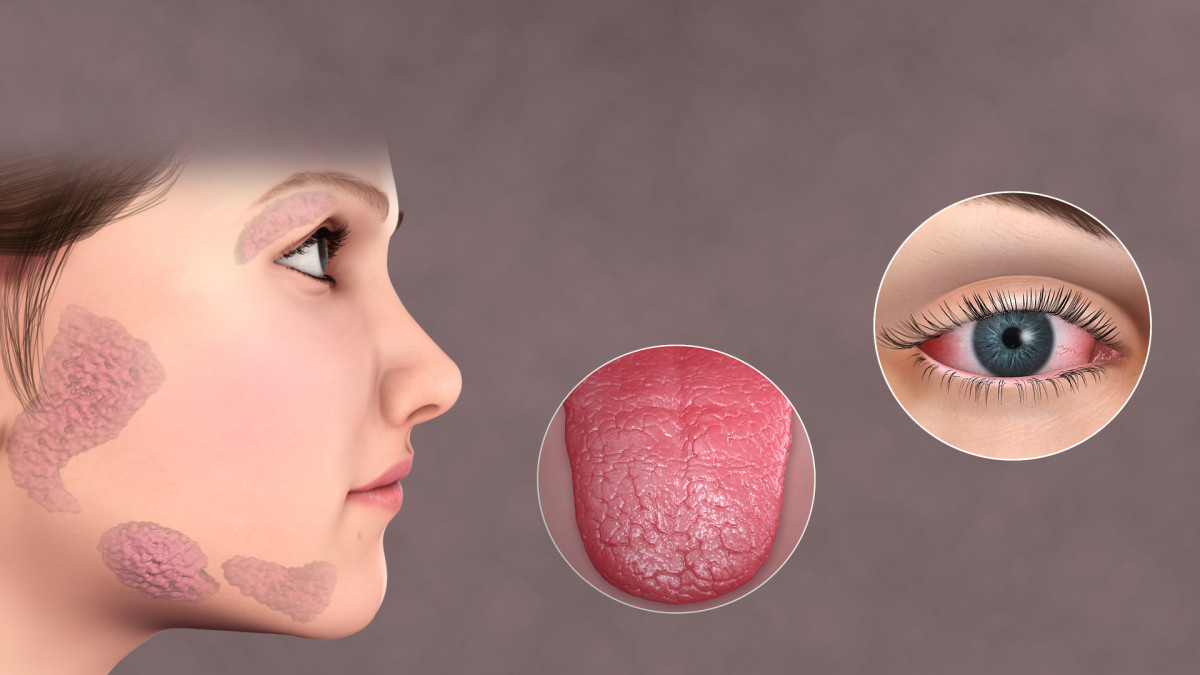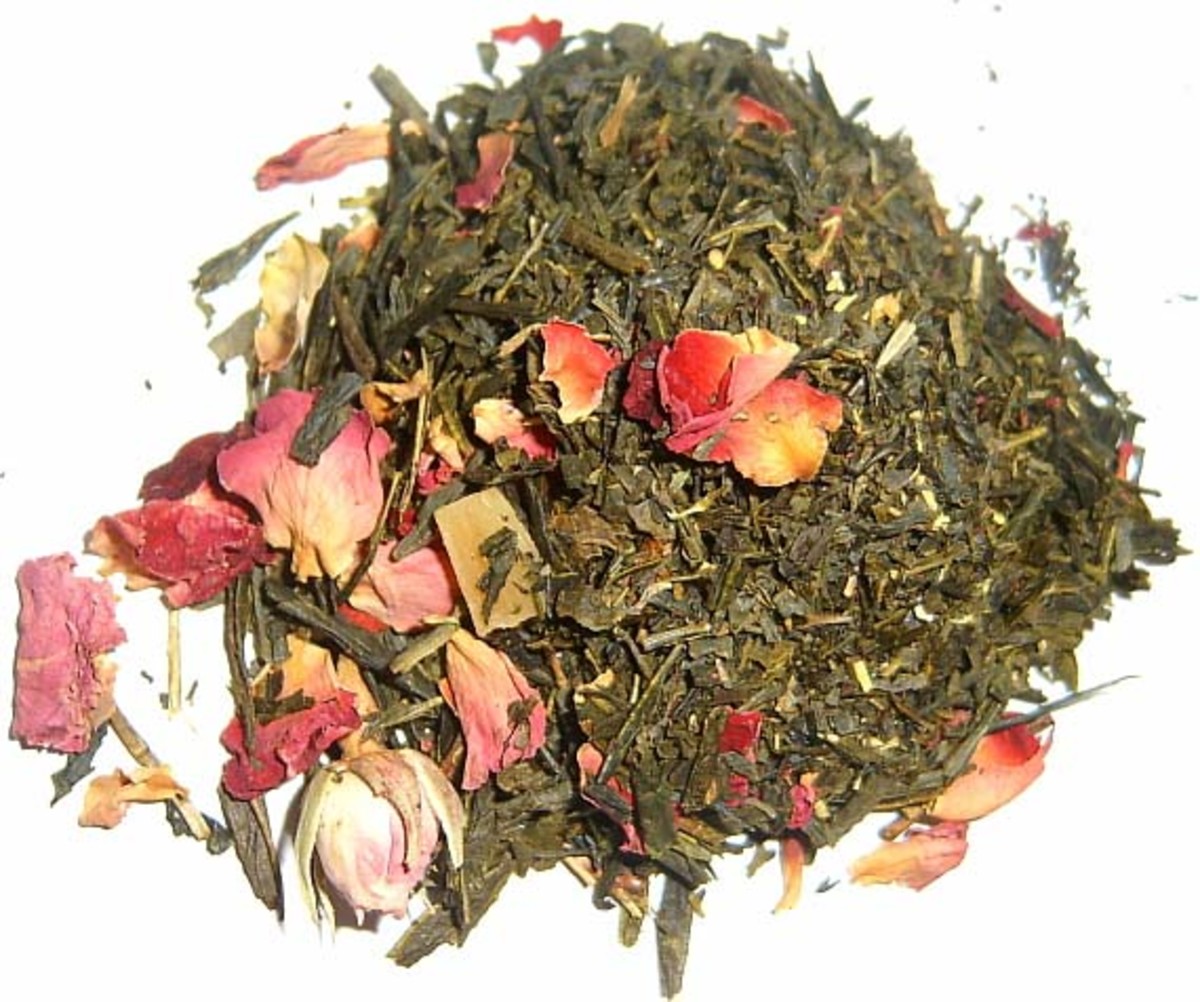- HubPages»
- Health»
- Alternative & Natural Medicine»
- Home Remedies
Zinc and the Common Cold
Zinc Lozenges
The Rhinovirus
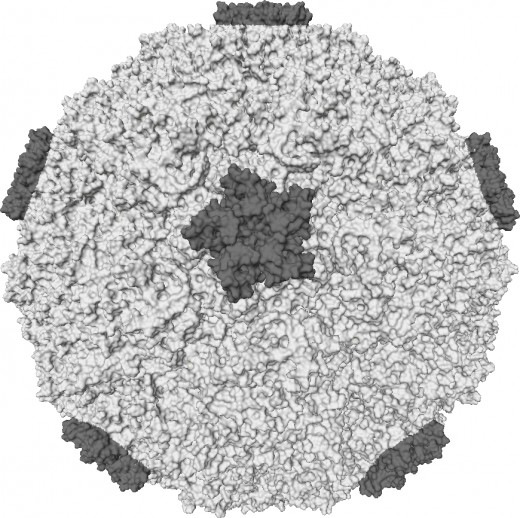
Saturday evening, I started to experience the familiar itchy feeling in my throat. I also felt a little woozy, and I thought I might have a fever. I started taking a zinc supplement. It was a Zicam Lozenge that dissolved under my tongue. It was vaguely almond flavored, like marzipan. The next morning I had a runny, drippy nose. I kept taking the zinc supplement. By Sunday night, I no longer had a runny nose, nor was my nose stuffy, and I wasn't coughing. (In my case, I usually have a cough after the runny nose subsides. I have allergies and am given to asthmatic symptoms every time I get a cold.) I kept taking the Zinc supplement every three hours when I was awake. By Monday morning, I was symptom free. It's as if the cold had never been there.
There was no post nasal drip. There was no dry cough or wheeze. The skin around my nose was undamaged. (Usually it flakes for a few days after a cold.) Nobody could tell I had even been sick.
This is a treatment that no doctor has ever recommended to me. It seems to work! It is not a cure, but it drastically reduces the symptoms. For me, it's the symptoms that matter! It's not what the cold virus does to my body that bothers me -- it's what my body does to itself when it detects the virus.
So, how exactly does Zinc work in combating the symptoms of the common cold? Does it boost our immune system, as is claimed? Or does it calm our body so that it doesn't overreact to the presence of the cold virus?
Viruses, Immunity and Auto-Immunity
A virus is not considered to be a form of life by most scientists today. Why? Because it has no metabolism of its own. In layman's terms, it doesn't eat or defecate. All it does is replicate, inside your own cells. But since replicating is one of the most important functions of a living entity, it's very, very close to being alive. In fact, viruses may be how life on earth began!
Like crystals, viruses spontaneously assemble. They have genes, they have structure, and they are self-replicating, but they are not alive. Outside a living cell, they do not exist at all. There is no fossil evidence for the evolution of viruses, so we don't know how they evolved. They thrive within organisms as parasites, but it may be that some previous version of these self-assembling organic building blocks is what what eventually led to life as we know it.
Autoimmune Disorders
The Immune System
Smart versus Stupid Parasites
We tend to think about disease in very self-centered terms. If we ascribe a purpose to a parasite, we often think that it is out to get us -- that its goal in life is to harm people or to kill them. Now if we look at this from the point of view of the parasite, that probably isn't the goal at all. The goal, to the extent that it makes sense to think in these teleological terms, is for the parasite to prosper and replicate itself. In other words: be fruitful and multiply and fill the earth!
So, what is the best way for a parasite to achieve this goal? To kill the host or to co-exist with the host?
A really smart virus is virtually harmless. It lives on us. It pilfers a little of our life energy, but it does not take too much. It knows not to be greedy. It doesn't foul its own nest. It does not destroy its environment. It is eco-friendly.
AIDs and Malaria -- and natural immunity
- Genetic HIV Resistance Deciphered
Scientists unravel the mysteries of AIDS immunity, finding that ethnicity and heredity make some people resistant to HIV infection -- but only if they have the right genes. By Randy Dotinga. - Are Some People Immune to AIDS? - TIME
An amazing group of men, who have thrived with HIV for more than a decade, may reveal how to beat it - Duffy antigen system - Wikipedia, the free encyclopedia
- Malaria - Wikipedia, the free encyclopedia
What is Known about the Common Cold
Smart versus Stupid Hosts
Some people have really overactive immune systems. (Sadly, I count myself among them.) These people's bodies are so offended by the presence of an intruder, that they would rather destroy themselves than share their resources.
What is a fever? It is a high temperature generated by our immune system in order to drive out a parasite. But if left unchecked, a fever can kill the host. So then the intruder is driven out or destroyed -- but what a price to pay!
Most of the symptoms of the common cold, including fever, runny nose and sore throat are the result not of the actions of the virus that is replicating itself in our cells -- but of our immune system's anguished efforts to destroy the virus or slow down its progress.
What I would dearly love to know is this: if the symptoms of the cold that we are aware of are not the result of the actions of the cold virus, what would the cold virus do to us, if our body didn't react so strongly? What would that look like?
Palliative Care
Rhinorrhea -- a fancy name for runny nose
Palliative Care
Palliative care is any course of treatment whose purpose and effect is to reduce the symptoms of a disease, without curing it or attacking its source. When we take fever reducing medication (aspirin, acetimeniphin, ibuprofen or some other product) during the course of cold, we are engaged in a palliative treatment. The disease is not caused by the fever, and reducing the fever will not make the disease go away. It may, however, save us from the excesses of our immune system.
So what happens is basically this:
- Your immune system detects the presence of a virus.
- In order to expell or destroy the virus, the system increases body temperature to the point where neither you nor the virus can function.
- Noticing that your body is about to self destruct, you reduce the fever by artificial means.
- Meanwhile, the virus either goes away -- or, and this is more likely, your body makes peace with it. (Making peace may mean that the virus continues to lurk in some of your cells but does not replicate itself at too high a rate so as not to disturb the normal functioning of your body.)
There is something counterproductive in the way medical intevention works to undo the effects that the immune system deems necessary for self-protection. If the high fever is really a useful strategy against invaders, are we sabotaging our immune function by reducing the fever? Or is the high fever already a sign that the immune system is in trouble and resorting to questionable tactics, like a retreating army that burns a village in order to "save" it from the enemy?
To think about this problem in dispassionate terms, we also have to consider the enemy's strategy. What will the virus do to us if left unchecked?
A virus that destroys every available host is doomed to extinction along with the hosts. That's why viruses still in existence have this strategy: they kill the hosts whose immune systems will not compromise with them. They keep alive specimens who somehow manage to reach a truce.
The HIV virus is a case in point. While the majority of people who were infected with HIV when it first surfaced eventually succumbed to AIDS -- acquired immune deficiency syndrome, some people never got AIDs, even though they were infected with HIV. Is it because their immune system was more active? NO! Quite the contrary. These were people whose immune system just didn't overreact to HIV. They took the whole thing in their stride. They didn't sabotage themselves.
It's the people whose immune system engaged in a fight to the death with HIV that eventually lost all immune function and then succumbed to other diseases.
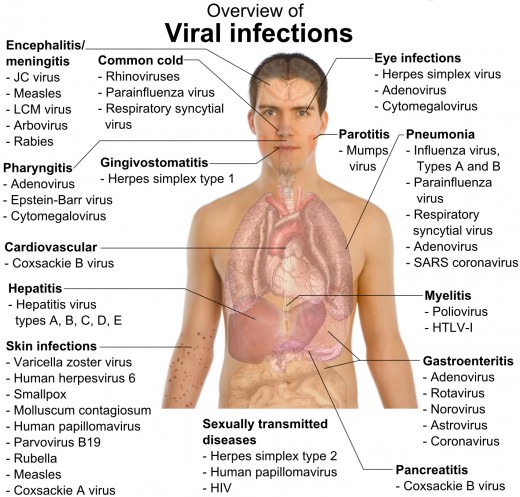
Textbook of Medicine --Discusses secondary immunodeficiency
Autoimmune Disease and Viruses
Some viruses are responsible for immune system malfunctions, but they are not solely responsible. It's a question of how the immune system responds to the presence of the virus. I've already mentioned HIV, which can cause a complete neutralization of the immune system in people with normally strong immune reactions. There are also viruses that cause a different immune system malfunction: autoimmune disease. In autoimmune disease, the system fails to recognize the difference between a foreign invader and a normal part of the body. It fails to distinguish between "self" and "other." It then goes on to destroy its own organs.
Here are a couple of viruses, together with the autoimmune diseases they are said to induce:
- Coxsackie B -- B4 strain may cause diabetes mellitus Type 1 in people with a genetic predisposition
- Human papilloma virus is said to be responsible for cervical cancer
How can a virus cause a systemic or organic disease in an infected person? The way it works is that some part of the virus mimics some normal molecule found in the body, and in the process of developing an antigen against the invading virus, the immune system creates an antibody that attacks its own working parts.
This is why a little less immune function is sometimes better than too much immune function. It is also why a simple viral infection is nothing to sneeze at. They can change your life.
Parasites and Autoimmune Function
- Biomonde - Administration - Maggot Therapie
www.biomonde.co.th - Fliegenmaden zur Wundbehandlung. Biomonde Thailand ist weltweit Marktf
Another part of the story is that the complete eradication of parasites is not always the best policy. In Western countries, internal parasites have pretty much been done away. This is causally linked, according to recent studies with autoimmune diseases of the digestive tract. Apparently, parasites, in the interest of their own survival, helped us to avoid an overactive immune reaction that can lead to things such ulcers and crohn's disease.
It could well be that the medical imperative to eradicate all disease, by the combined use of vaccines and antibiotics, has also led to a situation where the immune system has insufficient experience in responding to active viruses.
A third explanation for the rise of immune system dysfunction may be as a result of the reduction of infant mortality in the industrialized countries of the west. It could be that those people who are most vulnerable to immune system difficulties would not have survived early childhood under more natural conditions, and that this is why populations that receive less medical care are by and large untouched by the autoimmune diseases that are afflicting the developed world.
Overreactive Immune System in Plants
Distinguishing Immunity to Specific Diseases from Immune System Function
Sometimes, especially when a disease has been raging in a certain geographical region for many generations, there will emerge individuals who are immune to the disease in question. This has happened with malaria and it seems to be in the process of happening with AIDS. Some individuals do not have receptors where the virus can take hold, and so they are immune to the virus in question. Where the disease decimates entire families, individuals without the receptor sites flourish, reproduce and are more numerous in each succeeding generation. This is an example of how natural selection works. It is not an example of improved immune system function.
Immune system function is a generalized ability to fight intruders. It is not about immunity to any particular disease. When someone is immune to a disease due to lack of receptor sites, the immune system never even comes into play.
However, there is another kind of immunity that is due to being less reactive to the presence of intruders. There are degrees to which the immune system may react to threats. Being under-reactive may jeopardize one by allowing a disease to flourish, but being over-reactive is also not good, because the immune system can harm as well as protect us.
Even among plants, scientists are finding that reducing reactivity may have health benefits. In Columbia, Missouri, recent research has shown that reducing reactivity leads to higher crop yields. From the Scienceblog linked above: "A plant's immune system protects the plant from harmful pathogens. If the system overreacts to pathogens, it can stunt plant growth and reduce seed production."
So how reactive is your system? Would you thrive more if you reacted less to each intruder?
Remedies for the Common Cold
If you have a cold and you go see the doctor in United States today, you will be told it's a virus and they will give you nothing to help, leaving you with over-the-counter medications, most of which are really just palliatives. If your physician detects a bacterial infection (such as strep), then you may be prescribed antibiotics. Antibiotics, as their name suggests, are anti-life, and bacteria just barely qualifies as life, but viruses do not.
The zinc lozenges that I took for my cold were not palliatives, even though they did not attack the virus and they did reduce my symptoms. So the question is: what exactly did they do for me?
Aspirin would have reduced my fever. Antihistamines would have reduced my rhinorrhea. These palliatives would have worked only so long as they were in my bloodstream, and I would have to take more every so often. But the Zicam lozenges that I took didn't work that way. They did not target a particular symptom or block a specific immune reaction. They helped me get better faster.
So how did that work?
Zinc and Healing
- Zinc facts - zinc helps immune function and has proven effective in preventing colds and the flu, an
Zinc plays an important role in immune function and helps prevent colds and the flu. It also speeds up recovery from pneumonia. These are zinc facts.
Zinc helps improve white blood cell count. It has been shown to improve recovery times not only for the common cold and the flu, but also for far more serious conditions such as pneumonia. Even for those patients who are prescribed antibiotics, if zinc is taken in conjunction with the antibiotic treatment, healing occurs more quickly.
It's no use taking a multivitamin to get your zinc, though, as this will not allow proper absorption. Zinc lonzenges must be sucked, not swallowed, and it is the time that the zinc spends in the oral cavity that allows for proper absorption.
Lowered Resistance and Immune Reaction
The common cold is caused by a virus. Everybody knows that. Everybody also knows that if you have consistently failed to get enough sleep or you have been exposed to below freezing conditions with insufficient clothing, then you are likely to catch a cold.
Your doctor will tell you that you can't "catch a cold" from being out in the cold. It takes a virus. But experiments have shown otherwise. People do get cold symptoms when they are exposed to the elements with insufficient protection. A sharp drop in body temperature can induce a cold. This can happen to a person who is isolated from any living thing that might transmit a new virus.
How does that work? I think that the only reasonable explanation is that all of us carry cold viruses inside us all the time. We may even be born with them. When we are healthy and strong, they don't proliferate and our body does not overeact to their presence. When we are down, stressed out, exhausted, depressed or in any other way vulnerable, that's when they get out of hand, and our immune system gets out of hand, too.
It's a two way street. It's not just what the virus does. It's also how we handle it.
My guess is that zinc helps us handle it a little better.
Textbook of Medicine
Disclaimer
I am not a physician. This article is not intended as medical advice or a prescription of treatment. For diagnosis of your own symptoms, please consult a medical professional or other healer. Information in this article is of a general nature. Please be advised that zinc, like every mineral, can be toxic in high dosages. Please read instructions on any product for proper dosage or consult your physician.
(c) 2009 Aya Katz



